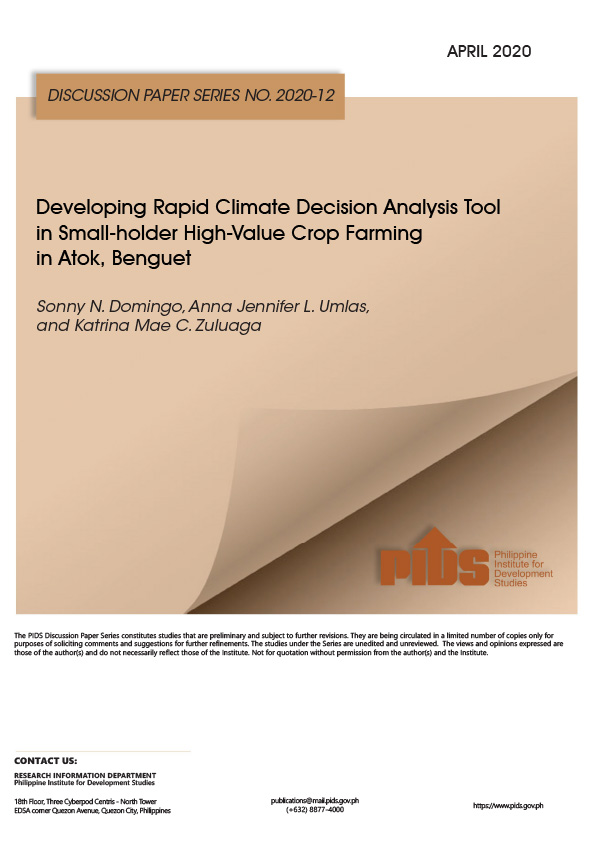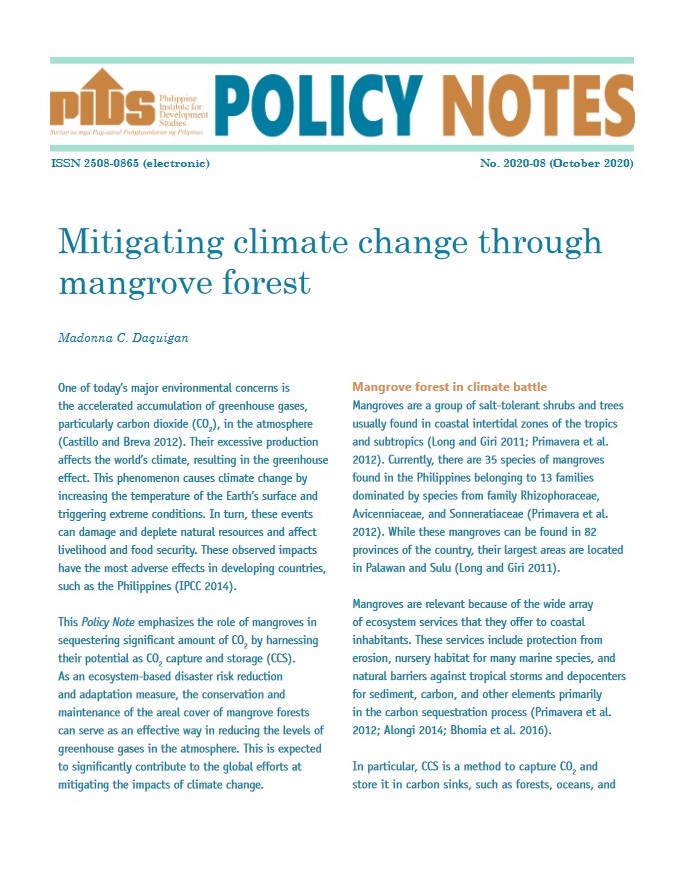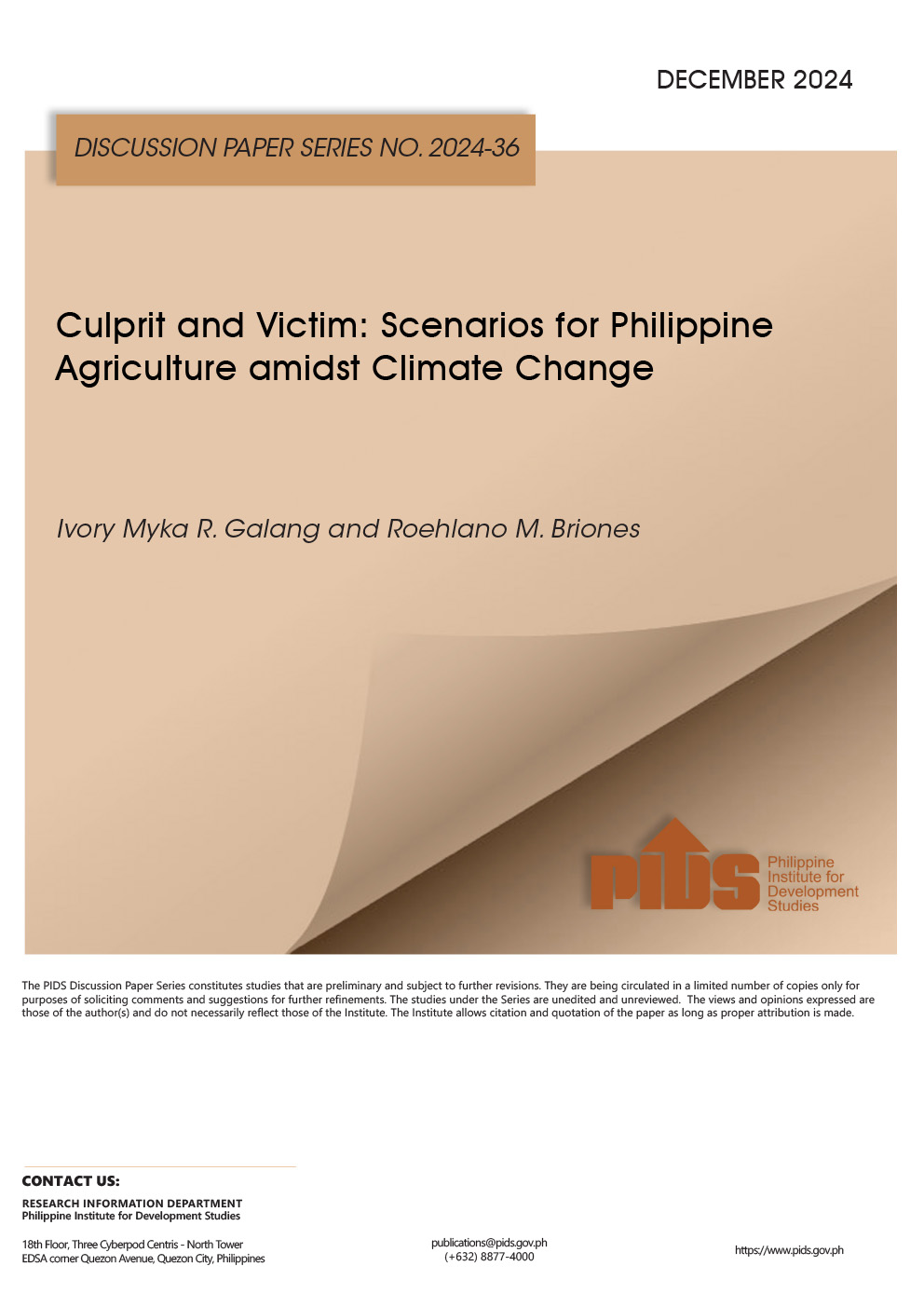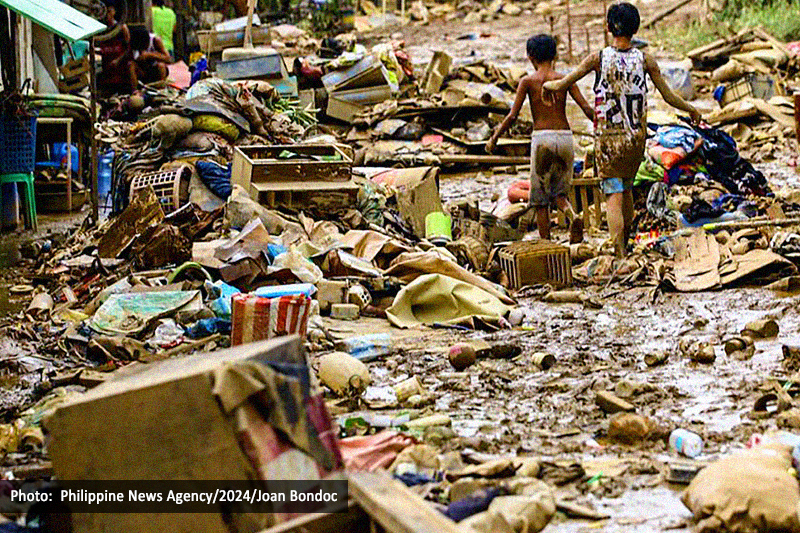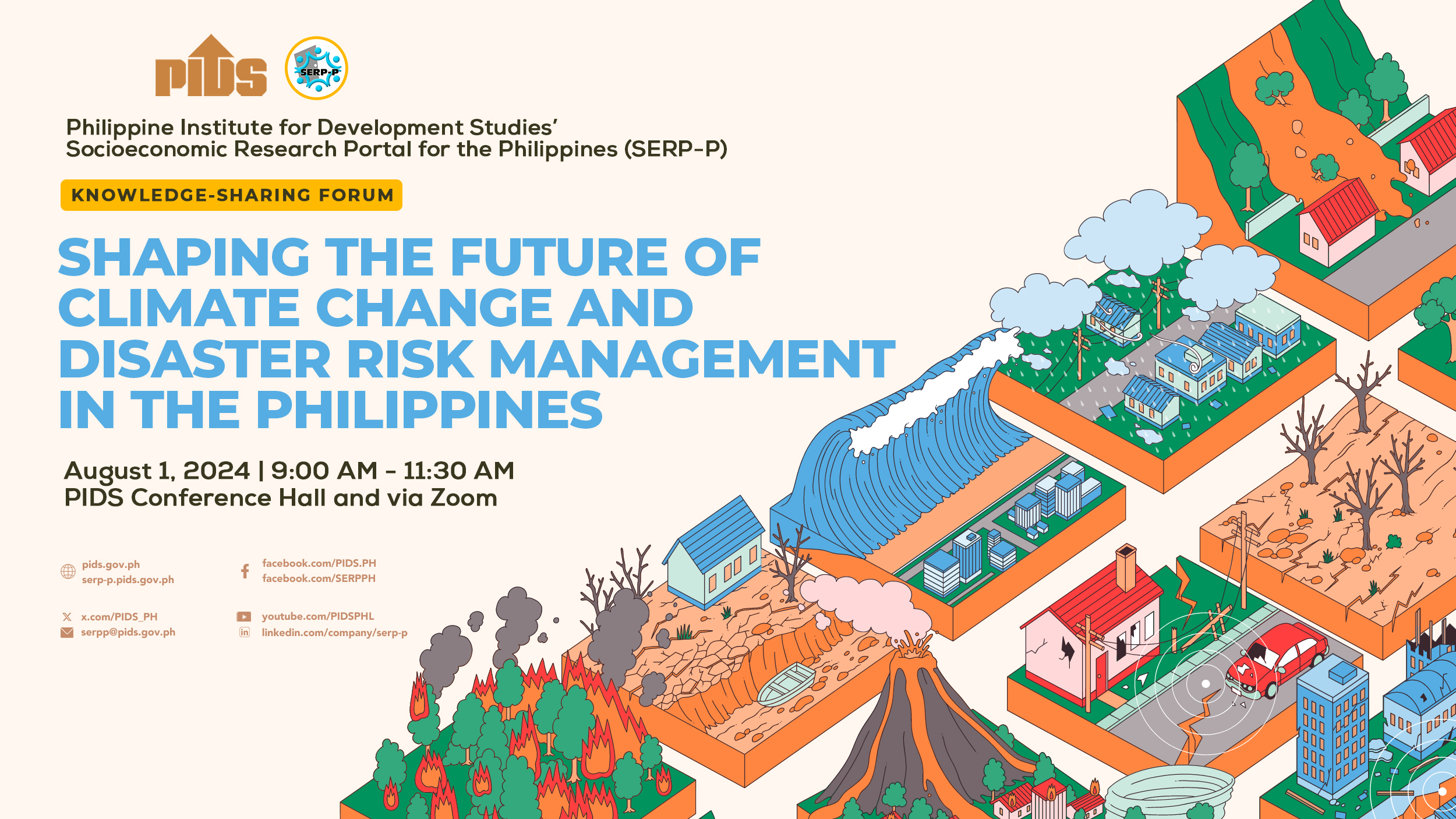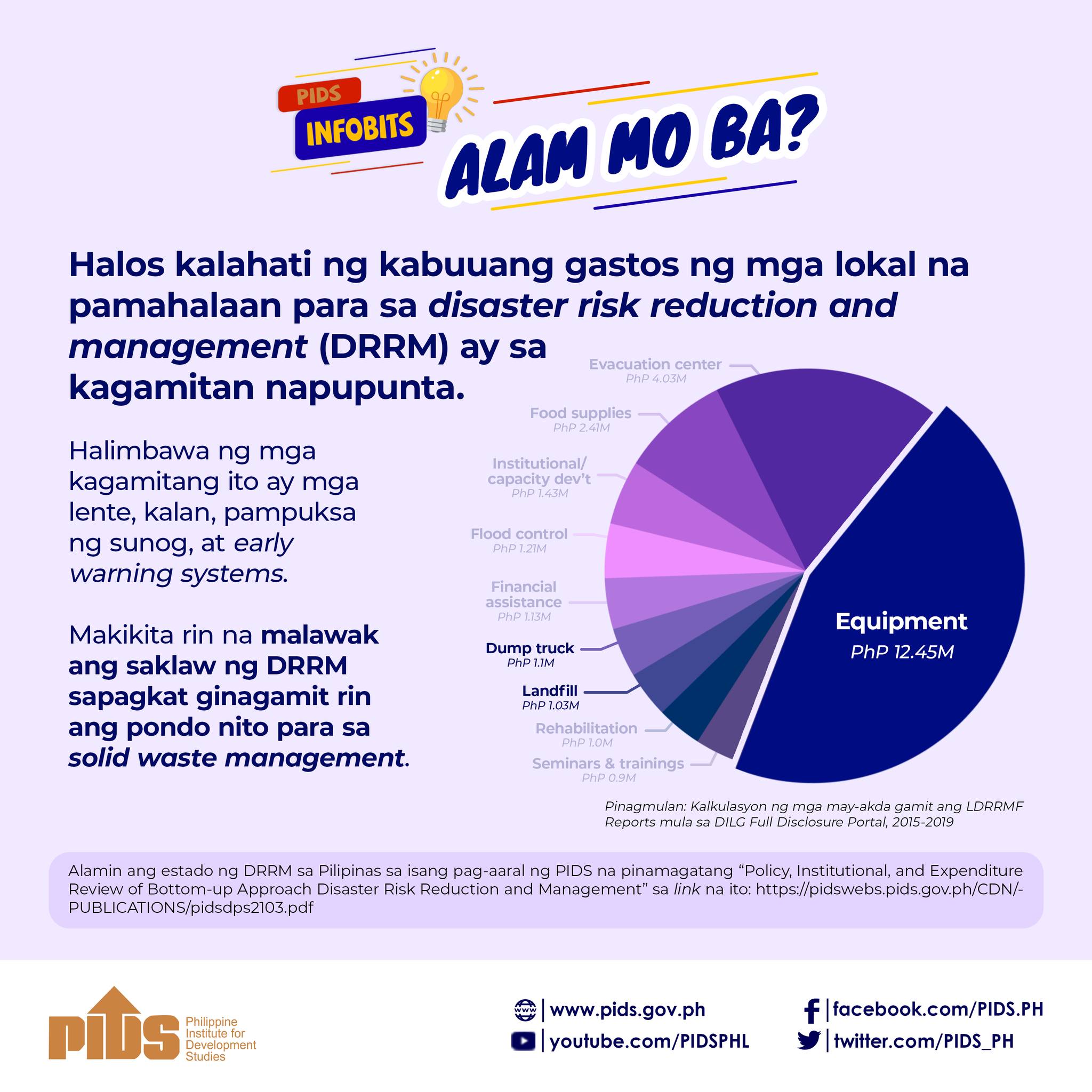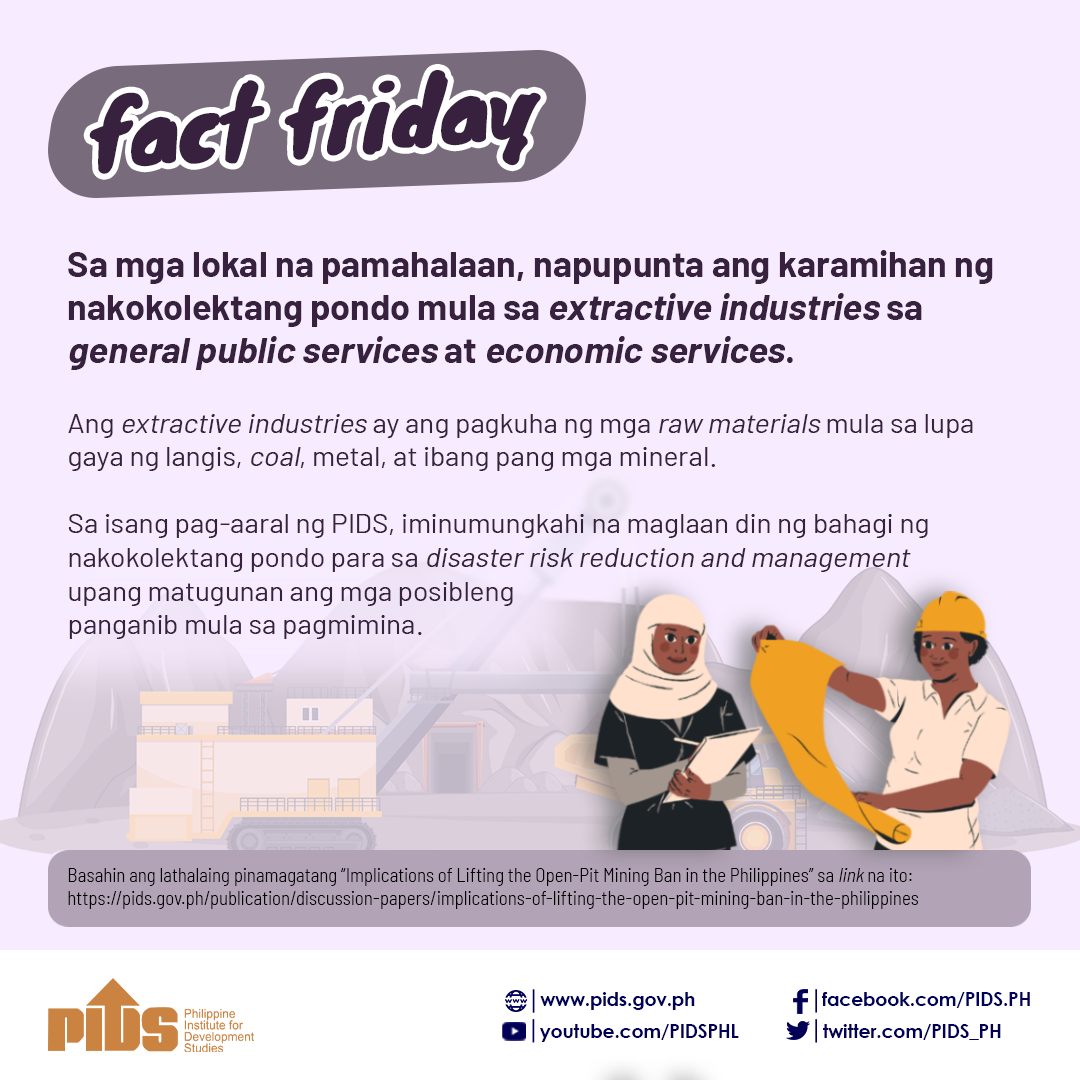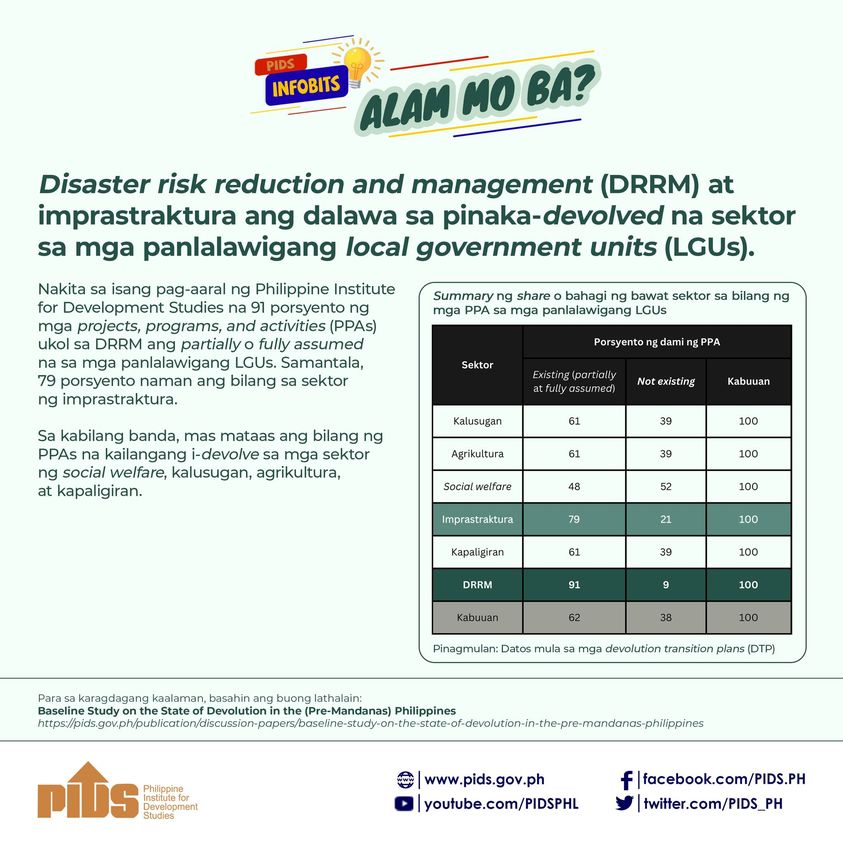The government needs an accounting system focused on addressing long-term socio-economic losses from disasters, the Philippine Institute for Development Studies, or PIDS, said in a paper published in December.
“Appropriate accounting for short- and long-run socio-economic impacts of disasters must be instituted,” the PIDS said. “Only direct impacts on destruction of infrastructure, property and casualties are often monitored and reported.”
The published paper was entitled “Study on Climate Change and Disaster-Related Loss and Damage Accounting.” Its authors were Sonny N. Domingo and Arvie Joy A. Manejar.
The United Nations has warned that disaster funds given to developing countries are five to 10 times smaller than their needs.
The UN estimated that the total fund should at least be $300 billion each year until 2030 to meet the actual needs of recipient countries.
Citing studies by the United Nations Office for Disaster Risk Reduction, the PIDS said “invisible losses” from disasters come from broken supply chains for food and energy, lost phone and internet connection and livelihood, and poor health.
PIDS said typhoons leave an average economic loss of 7 percent among households nationwide each year.
However, the institute said the losses could be higher considering that local governments lack an efficient coordination system, disaster knowledge and skills, assessment technologies, and strong leadership.
“Due attention must be given to strengthening structural platforms and processes at both national and subnational levels; method and tool acquisition have to be enhanced,” the PIDS said.
“Leadership and staff complements from the national down to the local level keep on changing so they do not mature over time. This is the reason why we start every time from zero,” the institute added.
PIDS recommended the creation of a central authority or a new department for disaster resilience to design and implement a comprehensive accounting system for organized and future-looking policies, rather than depend on reactive measures.
“Prevention spending can result in 26 million fewer people in extreme poverty each year,” PIDS said.
Last year, House Speaker Martin G. Romualdez, who represent Leyte’s 1st District, filed House Bill 13 for the establishment of the Department of Disaster Resilience.
After typhoon “Yolanda” ravaged Tacloban City in Leyte in 2013, Romualdez said its people were able to fully recover due in part to donations.

